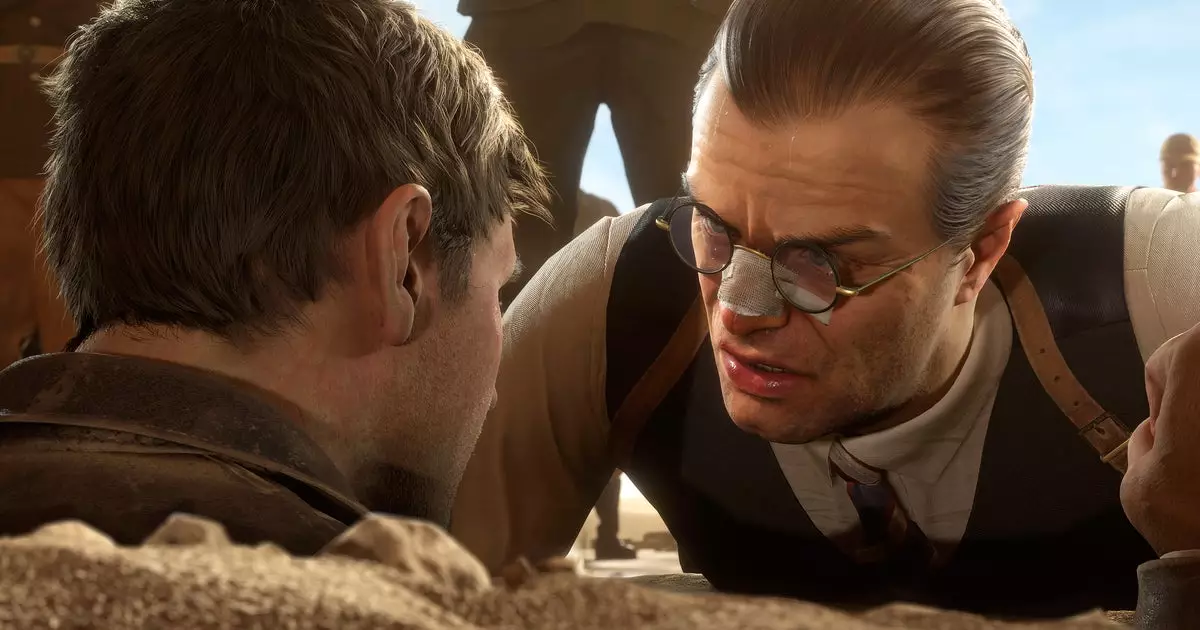In the world of video games and entertainment, the distinctions between escapist fun and problematic representations of historical figures or ideologies can frequently blur. A case in point is the beloved Indiana Jones franchise, particularly as it expands into new games that grapple with complex historical narratives. The latest installment, “Indiana Jones and the Great Circle,” seems poised to deliver exhilarating adventures while also treading delicately on the sensitive issue of fascism. The character Indiana Jones himself has been known for his vehement anti-Nazi sentiments, famously declaring, “Nazis – I hate these guys!” in the classic film Raiders of the Lost Ark. However, the way in which modern adaptations frame such sentiments raises critical questions about glorification, representation, and the responsibility of creators within the gaming industry.
Indiana’s interactions with Nazi characters provide fertile ground for scrutiny. While he indeed exhibits a strong opposition to their ideology, his past also reveals instances of moral ambiguity, such as inadvertently sleeping with a Nazi or donning an SS officer’s attire to gain an advantage. These conflicts can unintentionally complicate the portrayal of the enemy. It prompts viewers and players alike to consider whether the journey rightfully respects the gravity of its historical context or whether it trivializes fascist ideologies through the lens of a riveting adventure.
The introduction of “Indiana Jones and the Great Circle” conveys an unambiguous desire to root out the evils of the Nazi regime by allowing players to engage in combat against numerous representations of fascism within a decidedly one-sided narrative framework. However, the game’s explicit disclaimer highlights a crucial tension. It seeks to clarify that the content presented does not intend to condone or glorify the ideologies it depicts. This serves both as a legal safeguard for the developers and as a moral position toward a problematic historical backdrop.
What makes this disclaimer particularly noteworthy is its relation to broader trends within the gaming industry, particularly in countries such as Germany, where the portrayal of Nazi imagery has historically been restricted. Following a 2018 decision to ease these prohibitions under specific artistic and educational standards, developers have gained some leeway in how they represent such ideologies. However, this also introduces a risk that opportunistic individuals could misuse this content for far-right agendas. The capacity for appropriation remains a pressing concern as the game’s graphics and scenes find new life in the meme-driven cycles of social media.
While the developers may not intend to celebrate or glorify the depiction of Nazis, it raises an essential question: can a game, no matter how critical its text, inadvertently evoke sympathies for the oppressor through its mechanics? The notion of a “Third Reich Bullying Simulator” poses troubling implications. While players engage in the cathartic release of combatting obvious antagonists, one wonders if they might walk away with a diminished sense of the historical horror these figures represent.
This brings us to an essential inquiry regarding the internal guidelines of the development studios. As creators of interactive narratives, there exists a moral imperative to navigate the sensitive territory of ideologies that have caused immense suffering and destruction. Clear delineation between fun and serious engagement with historical issues is vital to avoid reductive portrayals that diminish the gravity of human experiences.
As the industry continues to grapple with the intersection of entertainment and representation, developers must be wholly aware of their narratives’ potential consequences. Greater scrutiny, sensitivity, and a commitment to a comprehensive understanding of history can help mitigate the unintended repercussions of escapist entertainment, fostering an environment where players can learn while thoroughly enjoying their virtual escapades.
As players embark on new Indiana Jones adventures, we must remain critically engaged with the narratives they experience. By fostering awareness and promoting responsible storytelling, we can enjoy the thrill of exploration without losing sight of the past—the scars it bears and the lessons it imparts.


Leave a Reply